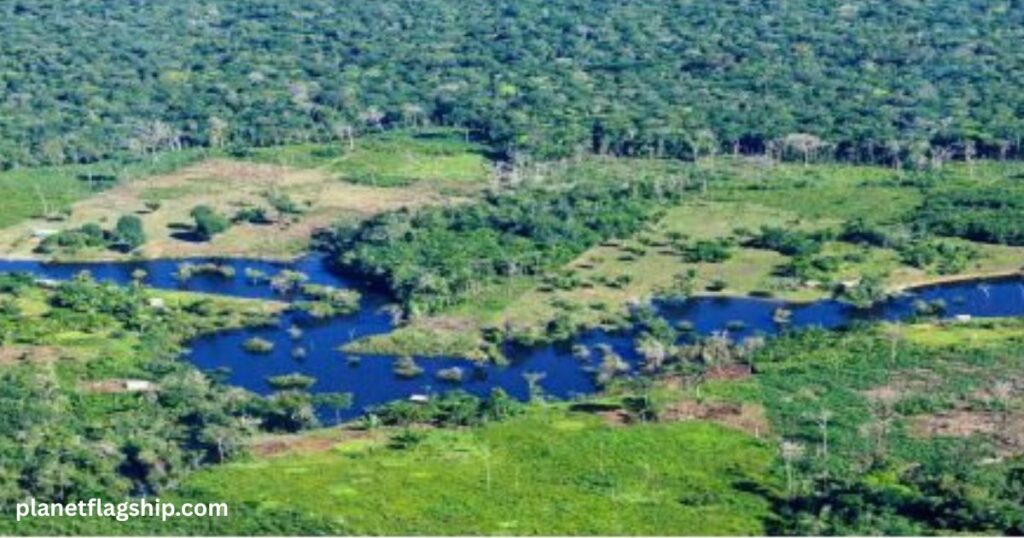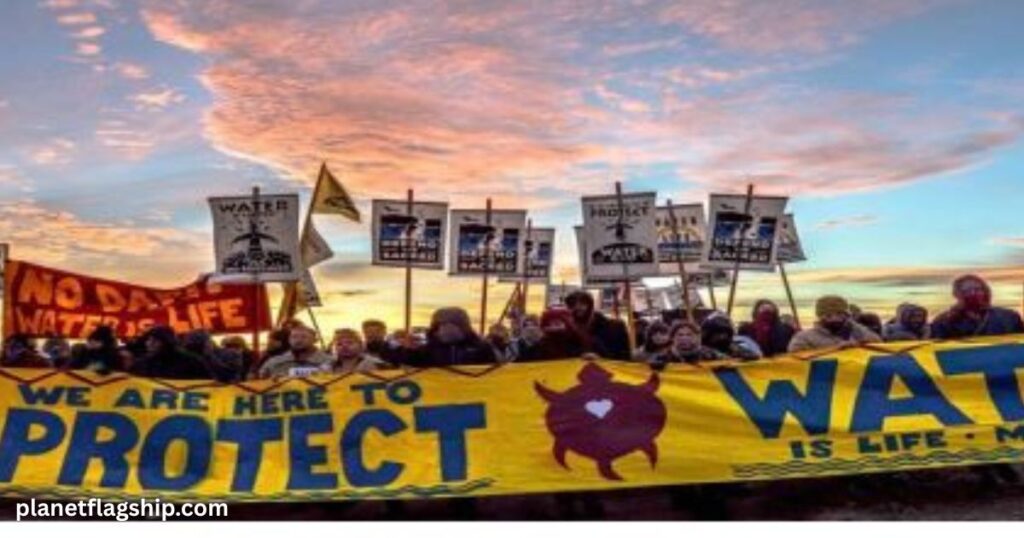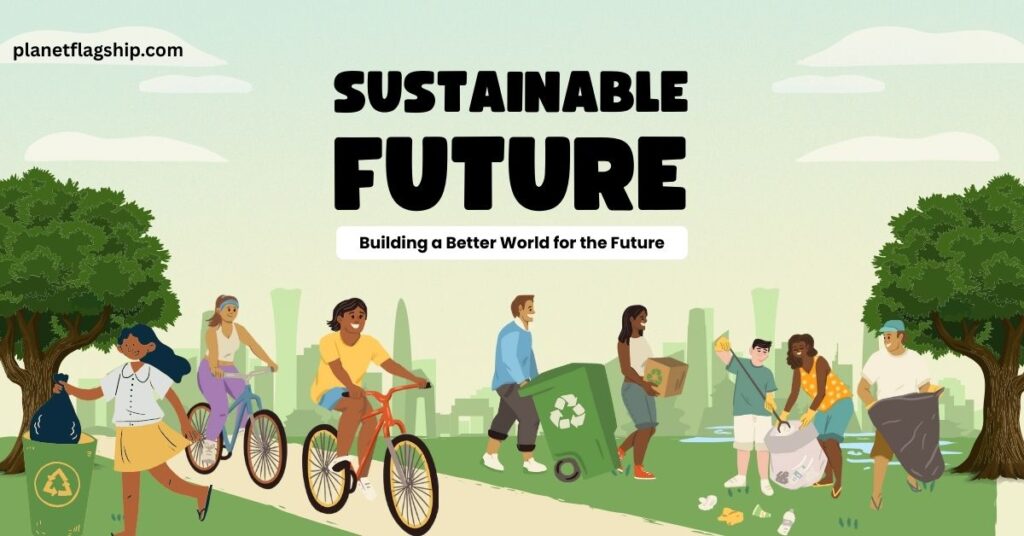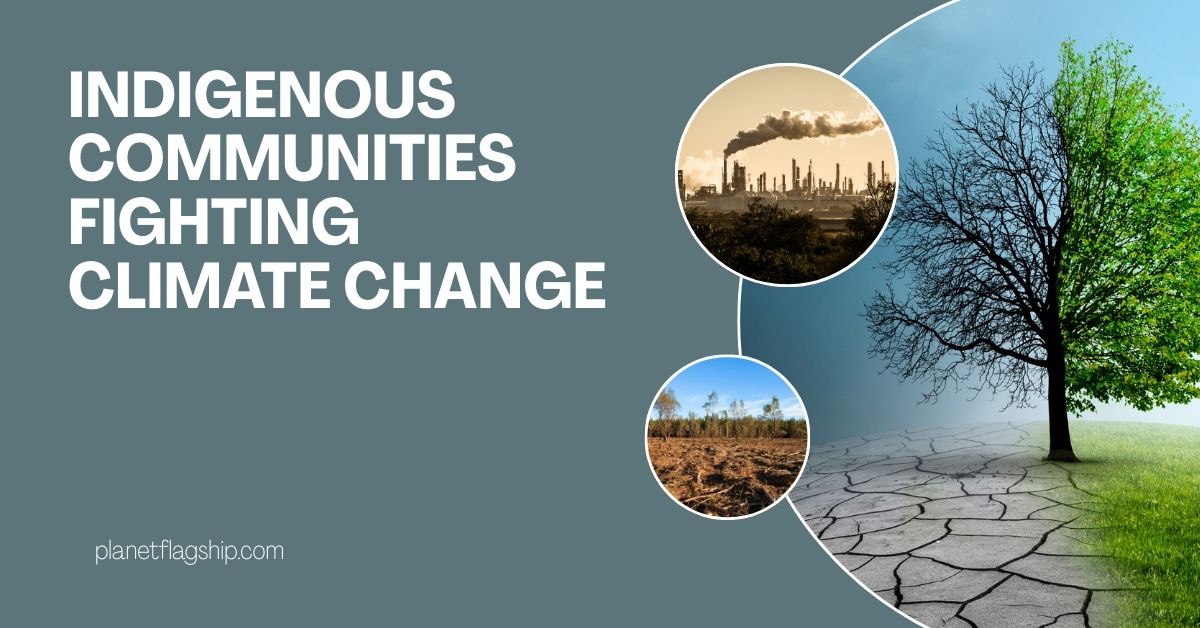Introduction
Indigenous communities have deep connections to their cultures and ecosystems around the world. These communities are now emerging as key leaders in the fight against climate change. Indigenous peoples are proving to be the most effective and resilient leaders in opposing Indigenous communities fighting climate change leveraging their intimate knowledge of local ecosystems, sustainable land management practices, and traditions of environmental stewardship.
Industrialization and deforestation cause the acceleration of climate change, which impacts Indigenous populations who live in vulnerable, ecologically sensitive regions.
They play a vital role in protecting biodiversity, conserving forests, promoting sustainable practices, and offering solutions to climate action. Indigenous communities have deep and blessed relationships with the land, forests, waters, and ecosystems in which they live. The traditional knowledge passed down through generations has guided them in ways of living that are in harmony with the environment.
These communities are offering sustainable solutions based on their experience. Ecologically sensitive areas (the Amazon Rainforest and Pacific Islands) are facing factual threats. They are turning their resilience into action. Indigenous peoples are conserving ecosystems and leading efforts in climate policy, environmental justice, and sustainable development. Indigenous communities fighting climate change are taking a central role in addressing climate change.
Traditional Knowledge and Conservation Practices

Indigenous communities have matchless knowledge of local ecosystems. For thousands of years, Indigenous peoples have coexisted in harmony with their environments, developing practices that foster biodiversity and promote environmental sustainability. These traditional ecological knowledge systems (TEK) are based on an understanding of species behavior, natural cycles, and land management strategies that enhance adaptability and resilience to climate change.
The Indigenous peoples of the Amazon Rainforest (Yanomami and Kayapo tribes) in Brazil have maintained forest management practices that increase biodiversity and prevent deforestation. Their control of burns, agroforestry, and selective harvesting has preserved large swaths of rainforest, which helps mitigate global warming and regulate the Earth’s climate. Farmers coexist with planted trees in these areas. This prevents soil erosion, fosters biodiversity, and contributes to carbon sequestration.
READ MORE: Sustainable Finance Revolution: How Ethical Banking is Saving Our Planet
In the Arctic, Indigenous people (Inuit and Saami) have been warning the world about the increasing effects of climate change on ice caps and coastal ecosystems. This knowledge of Indigenous peoples is a powerful tool in addressing climate change. Ice melts because of a warm climate. The Inuit Circumpolar Council highlights the alarming impacts of climate change on their environment and has worked to bring their knowledge to the forefront of climate science.
Their traditional knowledge has proven invaluable for scientists studying the impact of warming temperatures on ice cover and wildlife. These communities are knowledge holders, so they are not the victims. Their contributions are crucial to understanding and mitigating the crisis.
- Indigenous rangers in Australia spearhead the Forest Guardians program, preserving and rejuvenating ecosystems through the application of generations-old fire management techniques.
- The Amazon Rainforest: Indigenous communities (Kayapo) in the Amazon have helped to protect large areas of the rainforest from illegal logging and mining to conserve the forest’s ability to act as a carbon sink. They have successfully lobbied for land rights that are key to preserving the integrity of the rainforest.
Indigenous Advocacy in Policy and Climate Justice

Decision-making processes at global climate summits exclude Indigenous peoples. They are increasingly declaring their rights and fighting for representation in climate governance. Indigenous leaders are advocating for climate justice and pushing for the incorporation of traditional knowledge into national and international climate policies worldwide. Indigenous communities argue that the root causes of climate change are industrialization, deforestation, and fossil fuel extraction.
Their actions put their land rights and ecosystems at risk. They are fighting for their rights. One of the significant landmarks was the addition of Indigenous rights in the Paris Agreement of 2015. At COP21, the Indigenous Environmental Network (IEN) was an Indigenous organization that played a crucial role in advocating for the recognition of land rights in the Paris Agreement (Laing, A. F., 2023). They utilized international platforms, including the United Nations Permanent Forum on Indigenous Issues and the UN Declaration on the Rights of Indigenous Peoples (UNDRIP), to promote the inclusion of Indigenous peoples in climate decision-making (Barnabas, S. G., 2017).
They argue that climate policies will continue to harm their communities, which rely on the land for their cultural and economic well-being. Canada, Brazil, and Chile’s indigenous communities have fought against the extraction of natural resources and are successfully halting mining, oil drilling, and deforestation projects that would exacerbate climate change.
- The Standing Rock Sioux Tribe is a movement for climate justice that has brought global attention to Indigenous rights, environmental justice, and fossil fuel dependence (Todrys, K. W., 2021).
The Standing Rock Sioux Tribe’s resistance to the Dakota Access Pipeline (DAPL) represented Indigenous leadership in climate justice. The tribe fought against the pipeline, which threatened their water supply and would contribute to fossil fuel emissions.
Community-Based Solutions and Sustainability

Indigenous communities are developing innovative, community-based solutions that focus on sustainable livelihoods and climate resilience in various parts of the world. These solutions include renewable energy projects. The Maasai Mara community in Masai has partnered with conservation organizations to develop sustainable wildlife tourism models that benefit the environment and local communities. They have not only protected biodiversity but also created jobs and income sources through ecotourism (Holland, K. K., 2022).
In Bolivia, the Qhara Indigenous group is promoting sustainable agricultural methods that utilize traditional farming techniques to combat soil erosion, conserve water, and improve food security in the face of climate-related disruptions. Terracing, crop rotation, and the use of indigenous seed varieties help reduce the vulnerability of farming systems to climate change, promoting food security. Africa, Asia, and Latin
America are home to indigenous territories that encompass diverse ecosystems, including forests, grasslands, and wetlands, which are crucial for biodiversity conservation, carbon sequestration, and freshwater management. The Kuna people of Panama are another example of Indigenous resilience. They have implemented sustainable fishing practices that prioritize the conservation of marine resources and ecosystems.
- The Kogi Tribe in Colombia: Environmental protection is a vital aspect of maintaining harmony with the universe. They have organized initiatives to safeguard the Sierra Nevada de Santa Marta (biodiverse area) by incorporating traditional agricultural practices, forest management, and spiritual teachings into community-based conservation efforts.
- The Kuna people of Panama have implemented sustainable fishing practices in their territory to ensure a healthy fish population.
FAQ’s
Why are Indigenous communities important in fighting climate change?
Indigenous peoples protect nearly 80% of the world’s biodiversity through sustainable land and resource management. Their traditional practices preserve forests, waters, and ecosystems that store carbon. Without their leadership, global climate goals would be harder to achieve.
How does traditional knowledge help combat climate change?
Traditional Ecological Knowledge (TEK) guides Indigenous practices like controlled burns, agroforestry, and sustainable fishing. These methods maintain biodiversity and prevent ecosystem collapse. They offer time-tested solutions modern science increasingly relies on.
What role do Indigenous peoples play in global climate policy?
Indigenous leaders are pushing for climate justice and inclusion in global agreements like the Paris Accord. They advocate for land rights, environmental protections, and representation in decision-making. Their voices ensure policies respect both nature and human rights.
Can Indigenous-led solutions create economic benefits too?
Yes. Communities like the Maasai in Kenya and Kuna in Panama blend conservation with livelihoods. Ecotourism, sustainable farming, and renewable energy projects generate income while protecting ecosystems. These solutions prove sustainability and economic growth can coexist.
How can the world support Indigenous leadership in climate action?
Governments and organizations can strengthen land rights, respect cultural knowledge, and include Indigenous voices in climate negotiations. Consumers can also back sustainable products and advocacy movements. Empowering Indigenous peoples strengthens global climate resilience.
Conclusion
Indigenous communities are protecting the environment. They are spearheading the battle against climate change. To achieve sustainability, this initiative offers priceless advice for mitigating the effects of climate change and preserving biodiversity. Indigenous peoples demonstrate that the fight against climate change causes technical, cultural, and ethical transformations. The indigenous community needs to recognize its rights, acknowledge its contributions, and confirm its participation in climate decision-making processes.
Indigenous peoples, governments, and global organizations collaborate to honor traditional knowledge and implement policies that respect the land and protect its stewards for a sustainable future. We can move toward a more equitable, sustainable, and climate-resilient world by embracing their wisdom, protecting their rights, and amplifying their voices. Indigenous communities offer a wealth of traditional knowledge, innovative solutions, and unwavering advocacy for environmental justice.
Indigenous peoples are demonstrating to the world that climate action cannot be achieved without their active involvement. Their efforts to protect the planet and achieve global climate resilience, as well as their fight for Indigenous rights, are vital to the well-being of all humanity. The international community recognizes the leadership of Indigenous peoples and supports and empowers their efforts in decision-making processes, respecting their rights.
The climate crisis is a multifaceted issue, encompassing environmental, cultural, economic, and political aspects. We can better address the complex problems posed by climate change by amplifying the voices of Indigenous peoples, learning from their traditional practices, and working towards a more sustainable future for generations to come.
References
Laing, A. F. (2023). Indigenous peoples’ rights and the politics of climate change. In A Research Agenda for Human Rights and the Environment (pp. 31-53). Edward Elgar Publishing.
Todrys, K. W. (2021). Black Snake: Standing Rock, the Dakota Access Pipeline, and Environmental Justice. U of Nebraska Press.
Holland, K. K., Larson, L. R., Powell, R. B., Holland, W. H., Allen, L., Nabaala, M., … & Nampushi, J. (2022). Impacts of tourism on support for conservation, local livelihoods, and community resilience around Maasai Mara National Reserve, Kenya. Journal of Sustainable Tourism, 30(11), 2526-2548.
Barnabas, S. G. (2017). The legal status of the United Nations Declaration on the Rights of Indigenous Peoples (2007) in contemporary international human rights law. International Human Rights Law Review, 6(2), 242-261.

John is a professional blogger and passionate advocate for environmental sustainability. With years of experience exploring eco-friendly practices and green innovations, he shares insightful articles on Planet Flagship to inspire a sustainable future. John’s expertise lies in making complex environmental topics accessible and actionable, empowering readers to make meaningful changes for the planet.
